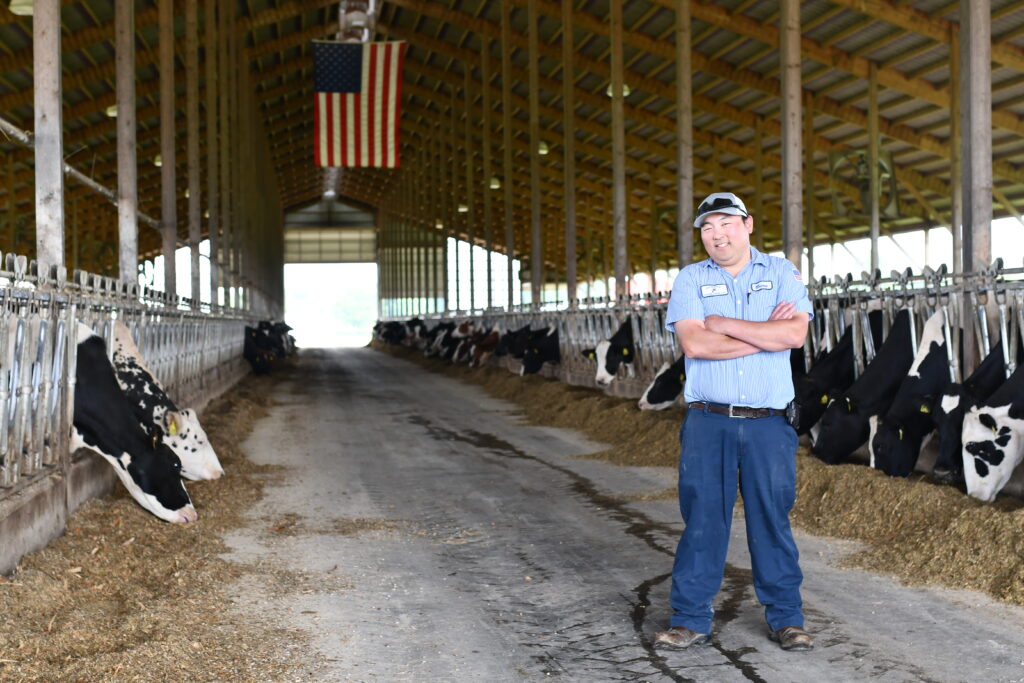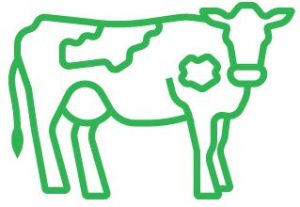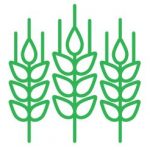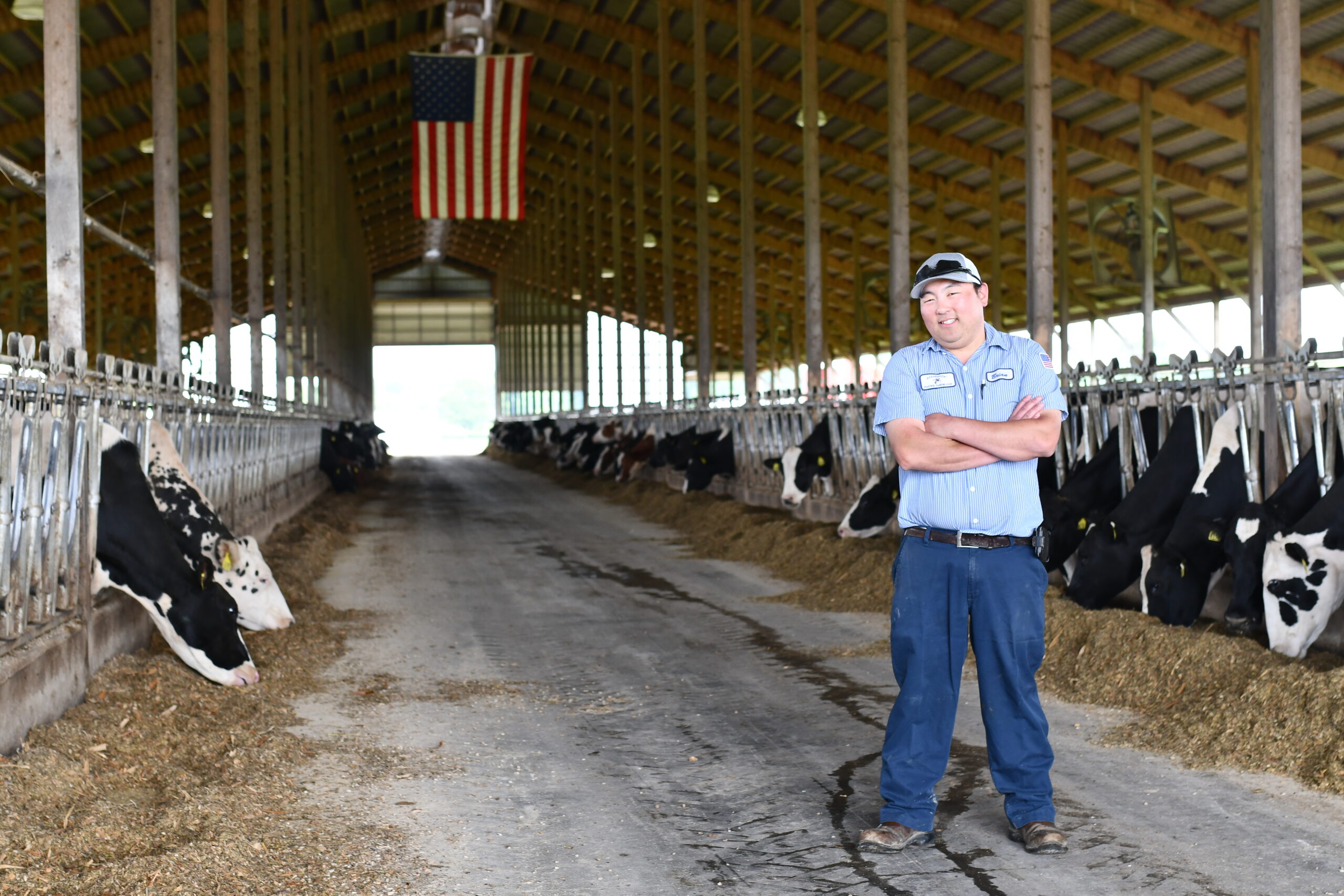MMPA is committed to cooperative social responsibility and sustainable business practices throughout our entire supply chain. At the farm level, MMPA members are also on a sustainability journey. We’re checking in with a handful of member farmers leading the charge with this sustainability spotlight series.

Efficiency is the name of the game for Brian DeMann at Clearview Dairy Farm in Martin, Michigan. With their 560-cow milking herd, DeMann and his family continuously seek additional efficiencies. They’ve found that many sustainable practices work hand-in-hand with achieving their goals.
“I think a lot of efficiency is gained through some of these sustainable practices,” DeMann said. “A lot of these farms did many of these practices forever, but now that there’s more focus on them, we’re really figuring them out and fine tuning.”
An area where DeMann has recently been fine tuning on the farm is with new precision agriculture equipment that gives him access to data beyond what he has had before and allows for site-specific crop management.
“I think on the cropping side of it, we’re having to purchase less commercial fertilizers because we’re really keying in on where we put our nutrients to where it counts,” DeMann said. “We’re able to know nutrient removal on every acre, so we’re specific in fertilizer application and not just applying to the whole field.”
DeMann’s new equipment also includes a chopper that can cover 300 to 400 acres in two days. The new equipment is not only precise, but also larger, which has had many unexpected benefits according to DeMann.
“We’re kind of a smaller farm, in a lot of aspects, but having that equipment matched to Michigan’s weather has been really favorable,” DeMann said. “We also have a happier crew because we are only going to chop eight hours a day versus twelve hours a day, but we’re doing the same amount of work in the eight hours. We’re able to balance life and work all through that machine.”
Precision agriculture is only the tip of the sustainability iceberg though for DeMann. He focuses not only on the environment, but also in ensuring that his daughter Kinsler has the opportunity to take over the farm one day.
“We always think environment right away when it comes to sustainability, but it’s also from a business model,” DeMann said. “You have to be financially sound and to be financially sound, you have to have business practices that allow that in a really volatile market. Sustainability is just having a financially sound business and a good business plan.”
For Clearview Dairy Farm, a good business plan means making a living, being willing to change and seeking to continuously improve. Sustainability is at the root of that.
“If we weren’t so worried about improving, or just didn’t worry about it whatsoever and just did how we were taught or how it always was, we wouldn’t be a lasting business from both the financial standpoint or from a consumer standpoint,” DeMann said. “I can tell you through practicing sustainability, we’ve become more efficient and really a cleaner farm.”
In his efforts to be more sustainable, DeMann has found that very few of the changes he’s made he’s regretted or had to go back on. He recommends to all farmers, “Don’t be afraid of change. Embrace it. We can always be comfortable, but you have to push yourself outside of that comfort zone, especially as things continue to evolve.”
When looking back at the evolution overtime, DeMann recalls the pushback for implementing forage cover crops on the farm. “I heard, ‘Oh, that’s just going to take us all the longer.’ But because we started using them, we’ve had 50 percent or better of our heifer feed made by cover crops in years we really needed it.”
Clearview Dairy Farm has been ahead of the curve on many of the practices deemed sustainable today, simply because of their drive to improve and willingness to change. As a result, DeMann is proud of his farm and excited for the future.
“We’re farming in a responsible way and we’re able to continue to do so and build upon that and improve,” DeMann said. “Sustainability is an everyday, 24 hours a day, seven days a week effort that we’re always doing. We’re always working on improving animal care, air quality, water quality and those kinds of things.”
Put simply, DeMann said, “Sustainability is that constant push to always improve. That little bit of a push makes you want to look for your efficiencies and look to get better because that makes you a better business.”
Clearview Dairy Farm is on a mission to be a better business for a better world.
Precision Agriculture: Precision agriculture, or site-specific crop management (SSM), uses a variety of technologies such as sensing, information technologies, and mechanical systems to manage different parts of a field separately.
Site-Specific Crop Management (SSM): Uses a variety of technologies to manage different parts of a field separately. Natural, inherent variability within fields means that mechanized farming could traditionally apply only crop treatments for “average” soil, nutrient, moisture, weed, and growth conditions.
SOURCE: USDA National Agriculture Library, USDA National Institute of Food and Agriculture

FARM
Clearview Dairy Farm LLC
Martin, Michigan

HERD
560 milking

LAND
1,400 acres of corn, alfalfa, soybeans and wheat

VERIFICATIONS
MMPA Sustainability Survey, Nutrient Management Plan, FARM* Animal Care,
FARM* Environmental Stewardship
This article was originally published in the July/August 2022 issue of the Milk Messenger. Subscribe »

